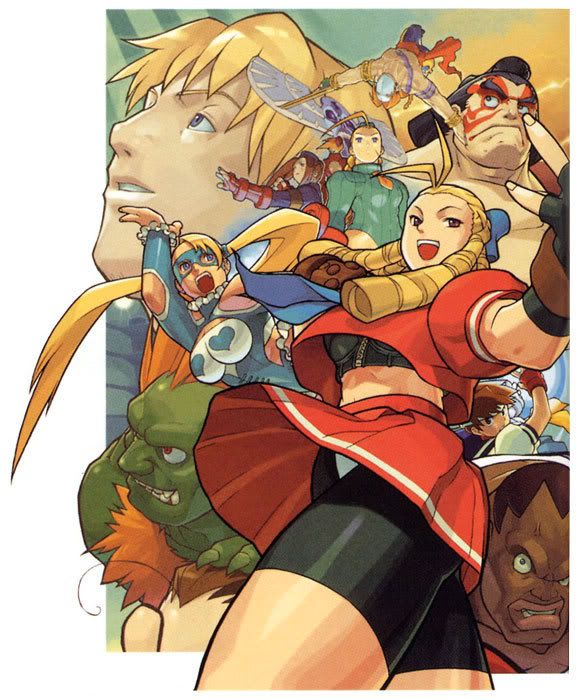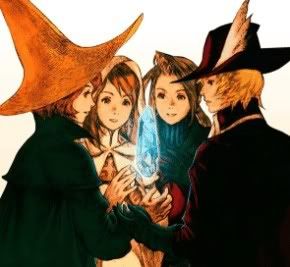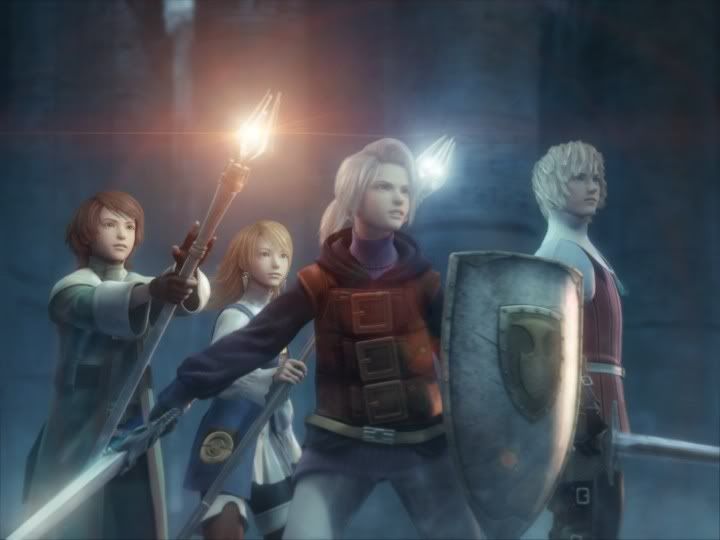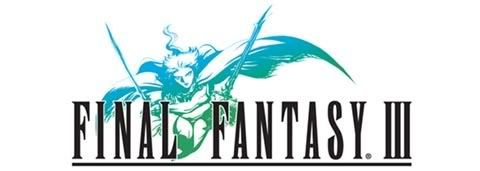Acute Issue
I’ll start and end on personal notes. I’m going to be presumptuous and state that unlike the other more-talented The Player folk, I like video games innocence. Which is nothing like reality innocence, which might see Little Timmy feel comfortable happy-slapping his grampappy ‘til he turned more blind if it meant getting a guest spot on Little Big Brother or something, I don’t know.
No, video games innocence, to me, is something mysterious and heartening and, perhaps most of all, overpowering. It’s that literally magical (it could only be magical, there’s no other explanation I’m willing to accept) quality often attached to thin-faced, big eyed leads in [mostly Nip] games that seems to make them oh so amiable. That quality which sees the special fourteen-year-old salvation inevitably carve a monster count in the hundreds whilst minding his P’s and Q’s and generally being awful trusting of everyone. Especially his silver haired older best friend who shows up halfway through dressed entirely in black who is later revealed in the guide book to wield a sword titled "The Traitor" or so. 
Why, when Sora is whisked away from his luxury tropical island home, given a giant key and told he must save several universes and remains chirpy throughout, I’m astonished I’m not violently sick. When Marche wakes in the middle of the street to find his town has changed into the kingdom of Ivalice before being challenged to a punch-up by bipedal lizards with only "a stuffed toy?" for help, I’m not switching off, refusing to accept the notion that children could do anything besides swear profusely before flipping fingers and fucking off for a shoplift.
I’m not convinced it’s necessary. Kingdom Hearts is often criticised for being inherently Disney in tone, with fans eager to celebrate the loss of primary colours with each new secret ending and trailer released and Final Fantasy Tactics Advance, despite the Japanese version handling issues such as alcoholism that Westerners don’t or shouldn’t know about, is occasionally dismissed by fanatics politely requesting the same degree of discreet storytelling PS1 Tactics produced.
They certainly aren’t aspiration, they haven’t promoted a generation of ever-hugging lovey pillocks floating through their lives with a smile and generosity poring out of every slimy orifice they possess, because (and I’ll continue to be presumptuous, hopefully with your blessing) most people who find themselves attached to these kind of leads are whining teenage pillocks moping through their lives with headphones in, frowns out and a thin slathering of oil poring out of every slimy orifice.
This in an entertainment format which eagerly produces pop icons out of spikey-haired grumpy sods with oversized weaponry in secret military groups made up of the emotionally unstable, gun-wielding big titted posh totty and butch, faceless ugly-shade-of-green space marines who clearly has a black man’s voice because they sound the coolest (this is a lie, by the way, the voice actor’s white). I’d hesitate to compare the excesses of fanart dedicated to each in some gruesome competition to demonstrate their popularity, if only due to my pronounced dislike of fanart and this isn’t GameFAQs, for God’s sake.
If we wanted to place a single word description, I would happily nominate ‘infectious.' Irrationally and unfairly unexpectedly so. Like a plague or an irritatingly catchy pop song that makes you consider murder/ suicide pacts to end the pain. But like Take That and the bubonic, you’re not sightless to the simpering stupidity, the excessive and unimaginably moronic dialogue, the unappealing stereotypes and often-accompanying Massive Damage (sorry) barrage of fantasy terminology, followed by more unimaginably moronic explanations again-oft surrounding a ridiculous recipe of amnesia, trust to the point of ignorance and the inevitable betrayal you saw just by their dress sense on the back of the box.
It doesn’t matter though. I forgive it. Stupid, moronic, unappealing, stereotypical and unexplainable but I, for one, am damn grateful for it. Because when you’ve got the Player furiously jacking off to Angelina Jolie’s digital rendition and Steve Downes’ sultry tones bringing the most ridiculously uncharismatic video game lead in decades to slighting popularity, I’ll happily entertain the notion that somewhere, imaginary sweetheart teenagers can save the world with insipid ear-reaching smiles, and me along with them. The happy little fucks.








